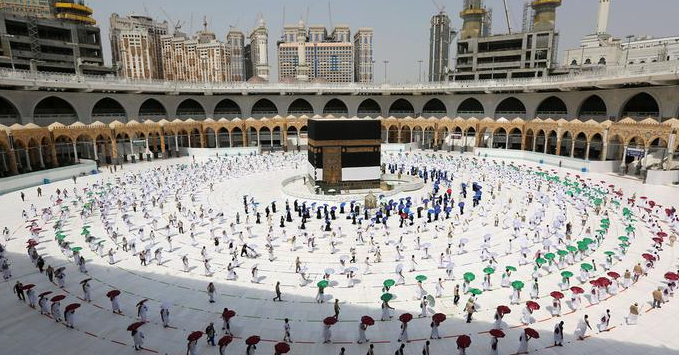
Summary: The Federal Government of Nigeria faces severe criticism for allocating N90 billion to subsidize the 2024 Hajj pilgrimage while only budgeting N50 billion for the student loan scheme. Experts in education and law criticize this decision as a significant misallocation of resources.
Details:
- Announcement: Vice President Kashim Shettima announced the subsidy during the flag-off of the 2024 Hajj exercise at Sir Ahmadu Bello International Airport, Birnin Kebbi.
- Reasoning: Shettima stated that President Bola Tinubu approved the subsidy due to the economic situation, aiming to lower the cost of the pilgrimage amid fluctuating foreign exchange rates.
Criticism:
- Educational Priorities: Critics argue that the subsidy reflects a misplacement of priorities, especially given the critical state of education and other essential sectors in Nigeria.
- Economic Context: The decision is seen as insensitive given the widespread poverty, hunger, and underdevelopment in the country.
- Legal Perspective: Some legal experts, including Senior Advocate of Nigeria Chief Awa Kalu, argue that the government should not be involved in subsidizing religious activities, which should be a personal expense.
Expert Opinions:
- Prof. Hyginus Ekwuazi: The former Vice-Chancellor of Dominican University criticized the subsidy as a gross misplacement of priority, arguing that funds should be directed towards education, health, and social welfare.
- ASUU President Prof. Emmanuel Osodeke: Indicated that the Academic Staff Union of Universities would review all government-sponsored pilgrimages before issuing a statement.
- Human Rights Lawyers: Festus Ogun and Pelumi Olajengbesi condemned the subsidy, highlighting it as a waste of resources and a misalignment with the country’s pressing needs. Malcolm Omirhobho noted the constitutional issues, emphasizing the separation of religion and state as mandated by the Nigerian Constitution.
Implications:
- Constitutional Concerns: Subsidizing religious pilgrimages may violate Section 10 of the Nigerian Constitution, which prohibits the government from adopting any religion as a state religion.
- Economic Impact: Critics argue that the funds could be better utilized to address national issues such as poverty, education, and infrastructure development.
Conclusion: The Federal Government’s decision to subsidize the 2024 Hajj with N90 billion has sparked widespread backlash, with experts and legal professionals calling for a reevaluation of priorities to better address the critical needs of the Nigerian population.




I’m impressed, I have to admit. Really rarely can i encounter a weblog that’s both educative and entertaining, and let me tell you, you might have hit the nail to the head. Your idea is outstanding; the problem is something not enough folks are speaking intelligently about. I am delighted i found this around my look for something in regards to this : LOKABET88
前往Telegram中文版下载官方网站,发现一个超越传统消息应用的平台。了解其独特功能,如广播频道、贴纸和API。加入数百万用户的行列。